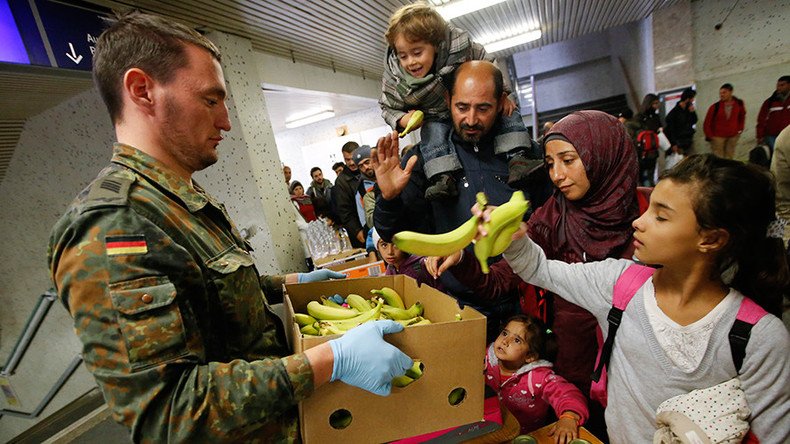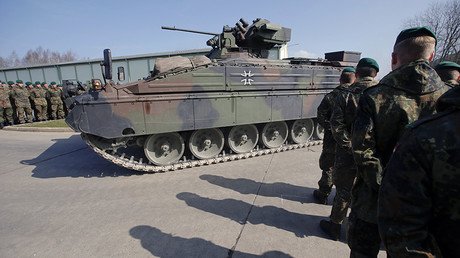German army needs to 'free soldiers from refugee care, focus on other missions'

The German Bundeswehr has played such a big role in dealing with the refugee crisis this year that an association of armed forces members is complaining they are too short-staffed to deal with other important missions.
The German military has dispatched up to 9,000 soldiers to deal with the refugee crisis, Lieut. Col. Andre Wüstner, who chairs the independent Armed Forces Association (DbwV), told Deutschlandfunk public radio. The organization represents some 200,000 active and former military personnel and their families.
Wüstner called on the civilian authorities to find resources to substitute those troops and allow the military go back to their traditional tasks.
Refugee care is "not our main area of competence and not our main task," Wüstner said.
Earlier this month Defense Minister Ursula von der Leyen said that "helping refugees is becoming an important additional task for Bundeswehr soldiers," Deutsche Welle reported.
The Bundeswehr provided 79 of its training camps to house almost 41,000 asylum seekers and is performing transportation, medical care and organizational tasks for refugees across the country.
At the same time, the German military is understaffed and needs at least 7,000 new recruits, according to the commissioned for army personnel in the German parliament, Hans-Peter Bartels.
In 2010, Germany reformed its army, abolishing conscription and reducing its strength from 185,000 to its current level of about 179,000 soldiers. The troops are stretched thin now, with Germany involved in multiple foreign missions.
This year the Bundeswehr delayed its planned withdrawal from Afghanistan and instead decided to send more troops to the ISAF as the country saw a surge of attacks by the Taliban. Earlier this month, German troops for the first time participated in missions of the US-led coalition fighting terrorists in Iraq and Syria. Germany is also involved as a peacekeeping nation in the Mali conflict.













